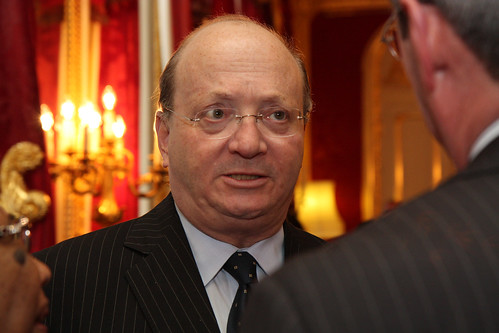Former senator, MP and journalist Pat Carney dies at age of 88
Hugh Segal #HughSegal

VANCOUVER – Pat Carney, who pioneered roles for women in Canadian politics and journalism, has died at the age of 88.
Her niece, Jill Carney, confirmed in a statement that the former MP and senator passed away late Tuesday.
Pat Carney was the first female Conservative member of Parliament elected in British Columbia and the first female Conservative appointed from the province to the Senate.
Born in Shanghai, China, in May 1935, Carney was educated in Canada and worked as a journalist and economic consultant in the Northwest Territories and Yukon.
Her website says she began her journalism career in the 1960s and was the first female business columnist writing for daily newspapers, including the Vancouver Sun and Vancouver Province.
She would later tell the Senate in her 2007 retirement speech that she never intended to get into politics.
“As a journalist, I sat in the press gallery … looking down literally and figuratively on the MPs while Dief the Chief jiggled his jowls,” she said, referring to former prime minister John Diefenbaker.
Nevertheless, she was first elected to the House of Commons in February 1980 in the riding of Vancouver Centre.
Her website says Carney was the first woman in every government portfolio she held, serving as the minister of energy, minister of international trade and president of the Treasury Board in Brian Mulroney’s cabinet.
Carney also pioneered the development of distance learning, and in 1977 received a B.C. Institute of Technology award for innovation in education.
Janice McAdam, Carney’s former assistant, said in a statement that Carney had been in and out of hospital recently and was readmitted over the weekend.
McAdam said the family is not planning a public memorial because Carney had said she preferred an event with only family and friends.
After retiring from politics, Carney continued to contribute to newspapers. Last year, she wrote about “the most chilling moment” of her political career, when she voted against her own government’s anti-abortion bill in 1991.
The bill came within a single vote of being enshrined in law.
“There was no doubt about how I would vote. I had told my voters that I believed a decision on an abortion was the right of a woman, her conscience and her doctors,” she wrote in the Globe and Mail.
“For personal reasons, I would not have an abortion, but that was my choice; I knew other women had their own reasons to make a different one.”
As the minister of energy, mines and resources, Carney was responsible for dismantling the National Energy Program and replaced it with the Western Accord, which deregulated the oil and gas industry, her website says.
As minister of international trade, Carney was responsible for the free trade negotiations with the United States.
Senator Hugh Segal said her role in the free trade negotiations “was seminal, clear cut and demanding.”
“She brought a Pacific-coast sensibility to discussions that would have been otherwise only about Central Canada, as is often the case in this city,” Segal told the Senate in 2007.
Carney also initiated a task force on barriers to women in the public service during her tenure as president of the Treasury Board, her website says.
Carney said in her farewell speech to the Senate that her favourite story about entering politics came when she tried to shake the hand of an elderly woman in downtown Vancouver in 1979.
“The benign-looking senior snatched her hand away and snapped viciously: `I would rather my hand withered and dropped off before shaking hands with a Conservative.’ She then walked away,” Carney said.
Carney was a mother of two and lived on Saturna Island, one of B.C.’s Gulf Islands.
This report by The Canadian Press was first published July 26, 2023.